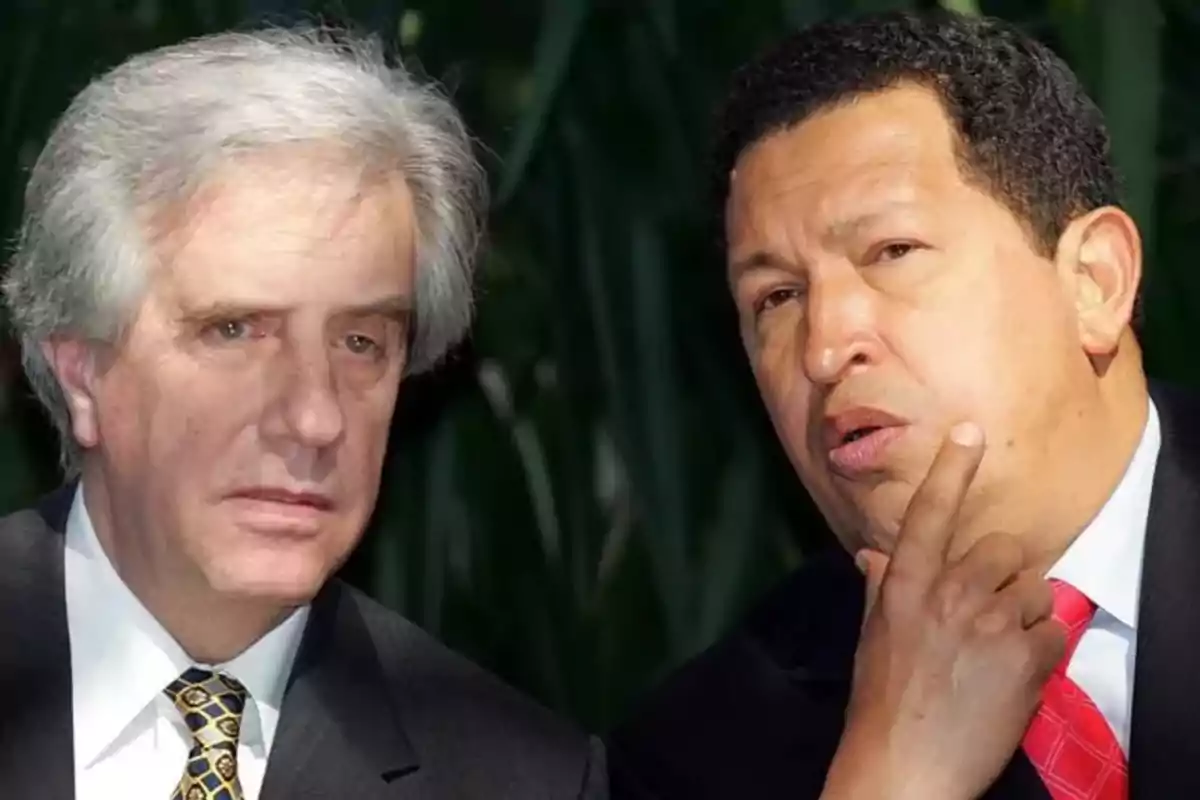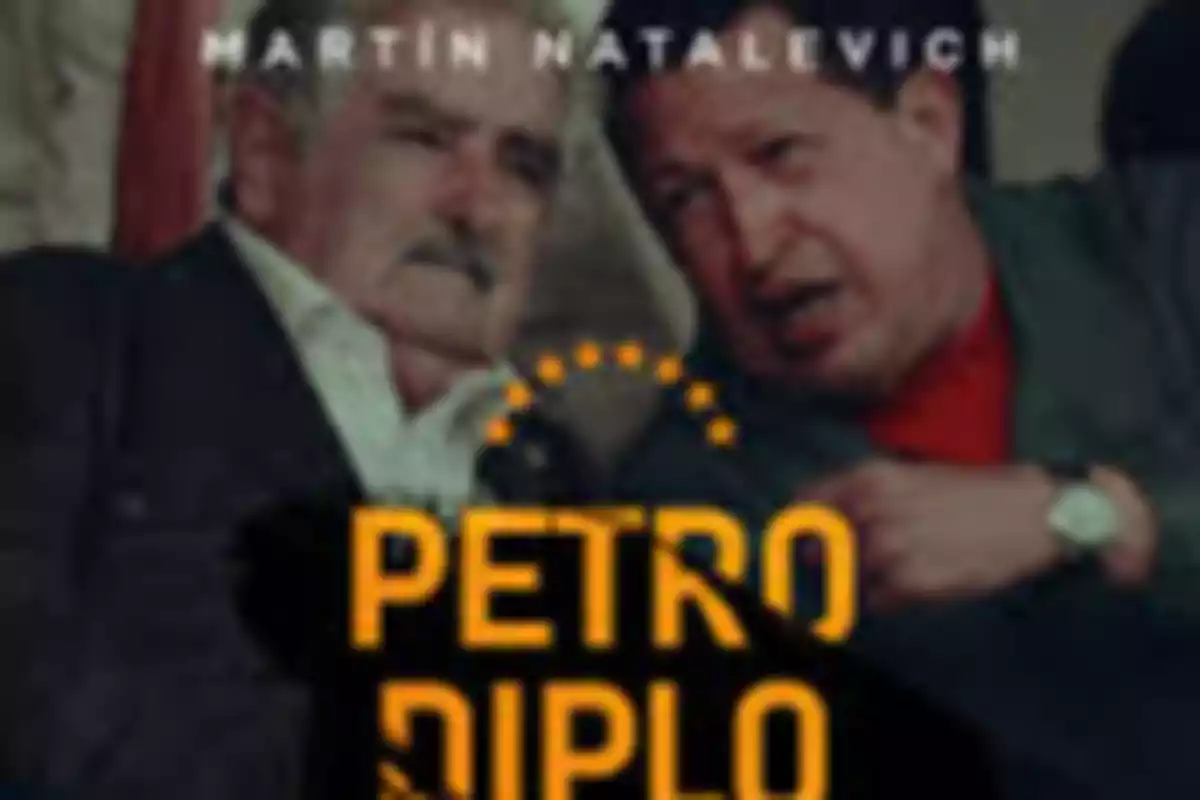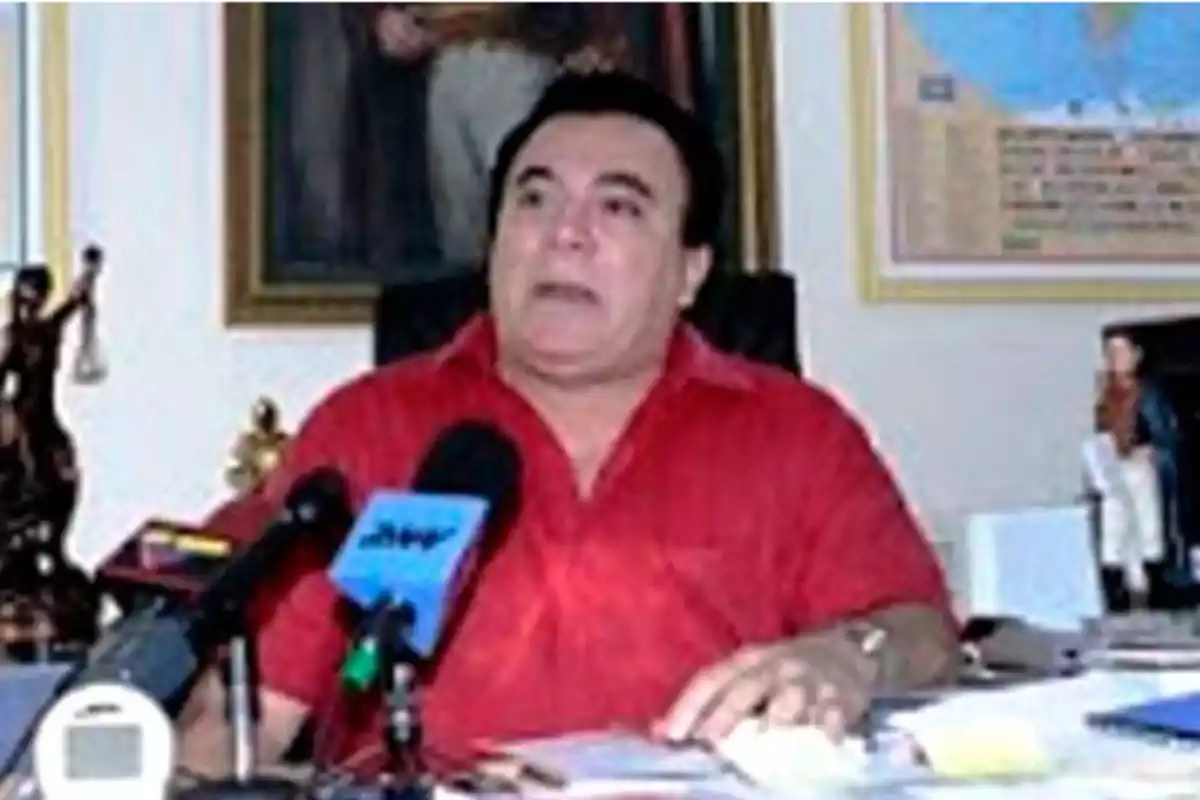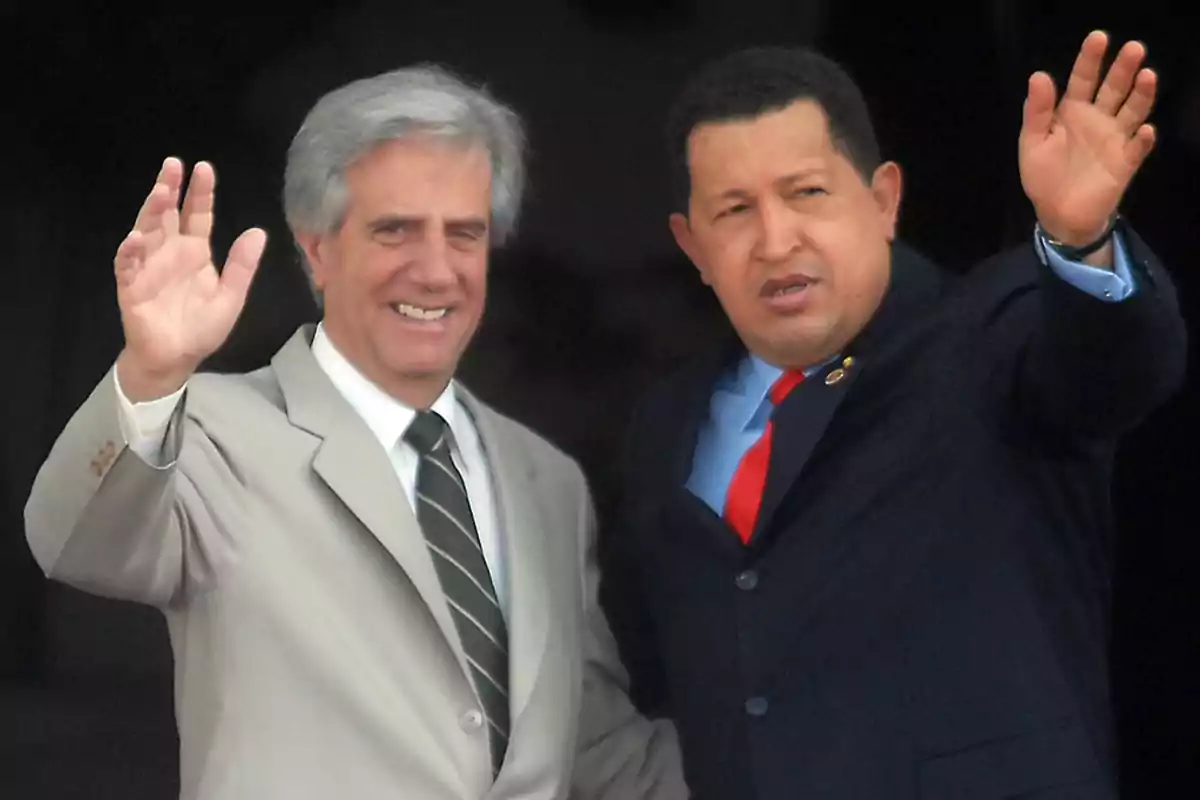
A book reveals that Chávez financed the Uruguayan Communist Party
A book by Martín Natalevich reveals the Venezuelan autocrat's funding of Uruguayan communists
Uruguayan writer and chronicler Martín Natalevich published "Petrodiplomacy: Suitcases, Business Deals, and Other Stories of Chavismo and Uruguay" in 2024 through Editorial Planeta.
It is a work of journalistic investigation that details the relations between Uruguay and Chavista Venezuela.
From Hugo Chávez's arrival in Montevideo in 1999 to 2024, covering six Uruguayan governments.
It covers the second Sanguinetti administration, and those of Jorge Batlle, Tabaré Vázquez, José Mujica, Vázquez again, and Lacalle Pou.
Based on secret documents, interviews, and hundreds of hours of work, it explores how ties between the two countries developed, including the influence of the "Bolivarian revolution" in Uruguay.

It refers to energy, trade, and financial agreements, such as those related to Venezuelan oil.
Diplomatic suitcases
Episodes such as the case of the diplomatic suitcases and other anecdotes that marked "petrodiplomacy" are analyzed by the author.
There was a Chavista strategy to extend its influence in the Río de la Plata.
In Argentina, Néstor Kirchner was in power, and between 2002 and 2003, during Batlle's administration, in Uruguay the Venezuelan foreign ministry placed its bets on the Frente Amplio winning the October 2004 elections.
Chávez already had Néstor Kirchner as an ally in Argentina and wanted to have an ally governing in Uruguay.
Chavista financing
Part of the book focuses on Chavismo's financing of the Uruguayan left, mainly the Communist Party (PCU).
Natalevich, in his book, sheds light on a web of corruption and complicity that has received very little coverage.
Natalevich's book details how Chavismo used large amounts of money to finance radical left-wing movements throughout Latin America, including Uruguay.
The scandal of the suitcase belonging to Guido AntoniniWilson, detained in Argentina in 2007 with 800,000dollars in cash, is just the tip of the iceberg, according to the author.
Chavista leader confirmed illegal financing
Hugo Carvajal, former head of Venezuela's Military Counterintelligence Directorate, confirmed that this illegal money route also passed through Uruguay, financing politicians and groups aligned with the Frente Amplio.

Specifically, in 2003, a pre-electoral year in Uruguay, there was contact with senior PCU leaders to structure a financing scheme.
The purpose was to support the PCU's 2004 electoral campaign with the aim of achieving a significant vote that could influence a possible government led by Tabaré Vázquez.
The Venezuelan government also made financial contributions to other radical left-wing groups, but its main interest was the PCU because it is a historic party, with a long trajectory, and well organized both politically and in the unions.
Chávez's envoy to Uruguay
One of the most striking revelations in the book is the operation carried out by EmiroBritoValerio, a Venezuelan lieutenant colonel close to then-president Hugo Chávez.
In 2002, Brito was caught entering Uruguay with bags full of dollars intended to finance radical left-wing groups, including the PCU.
This operation was detected by Uruguayan and U.S. intelligence services, and then-president Jorge Batlle personally intervened to demand Brito's departure from the country.
At that time, Brito was one of Chávez's most trusted men, although he later distanced himself from him.
It is not known exactly how much money the Chavista dictatorship allocated to the Uruguayan left, nor how much it gave to the PCU.
However, the fact is that the financing existed, and that money was used mainly in the 2004 electoral campaign that ended with the Frente Amplio's first national victory.

Marriage of convenience
The affinity of the main Frente Amplio leaders with the Chavista dictatorship is not only ideological, but also economic.
Chávez, who died of cancer in 2013, was a benefactor for the Uruguayan radical left.
The continental political project of the Venezuelan autocrat included Uruguay, especially the most extremist and authoritarian left.
It was a marriage of convenience. The Venezuelan needed to have pawns in Uruguay, and the Communist Party needed money for the electoral campaign.
As can be easily seen, the Communist Party usually finances itself with black money, with clandestine money from unmentionable sources.
Although they later claim that they only finance themselves by selling stickers and tortas fritas.
More posts: